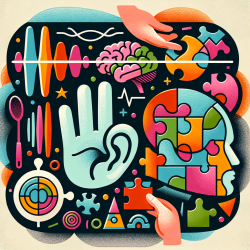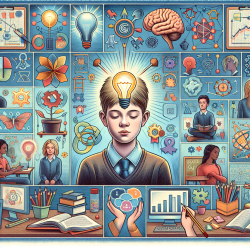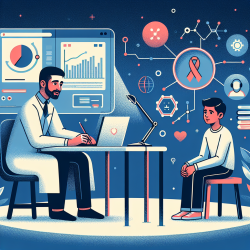The integration of technology into mental health services is revolutionizing the way we approach therapy and assessment. A recent study titled "Remote Digital Psychiatry for Mobile Mental Health Assessment and Therapy: MindLogger Platform Development Study" published in the Journal of Medical Internet Research, explores the development and application of the MindLogger platform. This innovative tool offers a new paradigm for mental health practitioners, particularly those working with children, by enabling remote, mobile, and digital assessments and interventions.
Understanding MindLogger
MindLogger is an open, configurable software platform designed to build clinical measures, mobile assessments, tasks, and interventions without requiring programming expertise. The platform aims to:
- Provide an administrator interface for creating and scheduling recurring and customized questionnaires.
- Enable end users to receive and respond to scheduled notifications via an iOS or Android app.
- Support the collection of data tailored to specific scientific questions from large, distributed, and diverse populations.
Key Findings and Implications for Practitioners
The study highlights several critical outcomes and features of the MindLogger platform:
- End-to-End Encryption: Ensures data privacy and security, which is crucial for handling sensitive mental health information.
- Customizability: Allows practitioners to tailor assessments and interventions to the specific needs of their clients.
- Accessibility: The platform is open source, making it a cost-effective solution for schools and clinics with limited resources.
- User Engagement: The platform includes engaging and interactive components, such as video, audio, and gamified elements, to enhance user experience.
Application in School Settings
For speech-language pathologists and other practitioners working in school settings, MindLogger offers several benefits:
- Remote Assessment: Conduct assessments without the need for physical presence, which is particularly useful during the ongoing COVID-19 pandemic.
- Real-Time Data Collection: Gather data in real-time to monitor progress and make timely interventions.
- Custom Interventions: Develop and deploy customized interventions based on the specific needs of each child.
Encouraging Further Research
The flexibility and configurability of MindLogger open new avenues for research. Practitioners are encouraged to:
- Explore New Applications: Use the platform to test new hypotheses and interventions in real-world settings.
- Collaborate Across Disciplines: Work with researchers from different fields to develop comprehensive mental health solutions.
- Publish Findings: Share insights and outcomes to contribute to the growing body of knowledge in digital mental health.
Conclusion
The MindLogger platform represents a significant advancement in the field of digital psychiatry. By integrating this tool into their practice, speech-language pathologists and other mental health professionals can enhance their assessment and intervention strategies, ultimately leading to better outcomes for children.
To read the original research paper, please follow this link: Remote Digital Psychiatry for Mobile Mental Health Assessment and Therapy: MindLogger Platform Development Study.










